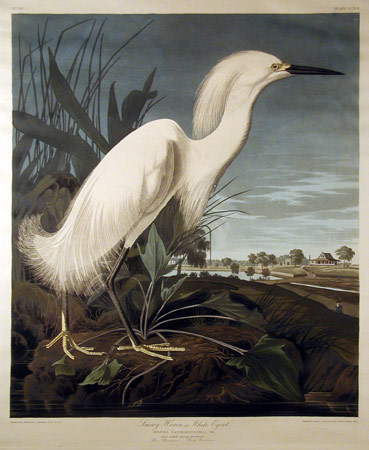
If life seems hard at the moment, I have a poem that may lift you up: Mary Oliver’s “Egrets.”
Oliver is, if not the most popular poet writing in America today, at least among the top five. Her poems often function as prayers to a divine spirit running through nature. In this way, she comes out of the American transcendental tradition of Ralph Waldo Emerson and Henry David Thoreau, a tradition that includes, among others, Emily Dickinson.
Oliver also reminds me a lot of Robert Frost in the way that, even as she is describing something in nature, she simultaneously seems to be providing us with an allegory for our lives. In “Egrets” she even seems to be directly referring to the following passage from Frost’s poem “Birches”:
It’s when I’m weary of considerations,
And life is too much like a pathless wood
Where your face burns and tickles with the cobwebs
Broken across it, and one eye is weeping
From a twig’s having lashed across it open.
The allegories from “Egrets” work for me because Oliver’s descriptions are so exact. I have literally fought my way through “knotted catbrier” and battled with “wheeling and whining” mosquitoes.
But even those who haven’t may recognize these as effective symbols for those moments when they find themselves trudging painfully through life. Those moments when the path seems to be closing over us and there is no expectation that anything will open up.
Upon reaching the black and empty pond, the poet believes that all her efforts have come to nothing. Here there seems to be nothing but bleached reeds. But as so often occurs with Oliver, she is suddenly presented with a moment of grace. Here’s the poem:
Egrets Where the path closed down and over, through the scumbled leaves, fallen branches, through the knotted catbrier, I kept going. Finally I could not save my arms from thorns; soon the mosquitoes smelled me, hot and wounded, and came wheeling and whining. And that's how I came to the edge of the pond: black and empty except for a spindle of bleached reeds at the far shore which, as I looked, wrinkled suddenly into three egrets— a shower of white fire! Even half-asleep they had such faith in the world that had made them— tilting through the water, unruffled, sure, by the laws of their faith not logic, they opened their wings softly and stepped over every dark thing.
It is as though the egrets appear out of nothing. The water wrinkles and suddenly, magically, there is “a shower/of white fire!” The birds seem to tilt as they softly step through the water. It’s not even necessary for them to be entirely awake and alert because they have faith in the world that made them. They do not operate by our logic, which spends a lot of energy toting up its responsibilities and grievances and anxieties. They are unruffled by dark things.
And then they open their wings.


One Trackback
[…] a poem like “Egrets,” for instance (which I posted on here), she describes a kind of crucifixion as the speaker forces herself through a pathless […]